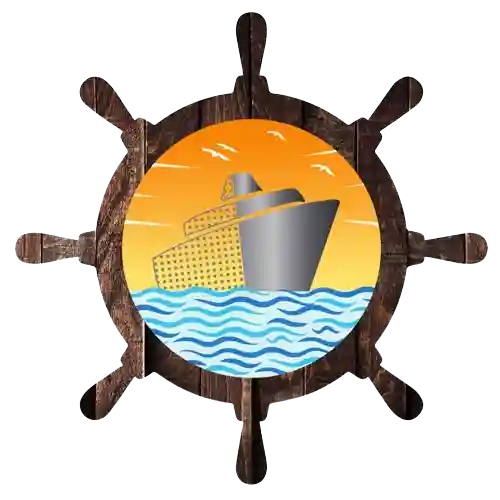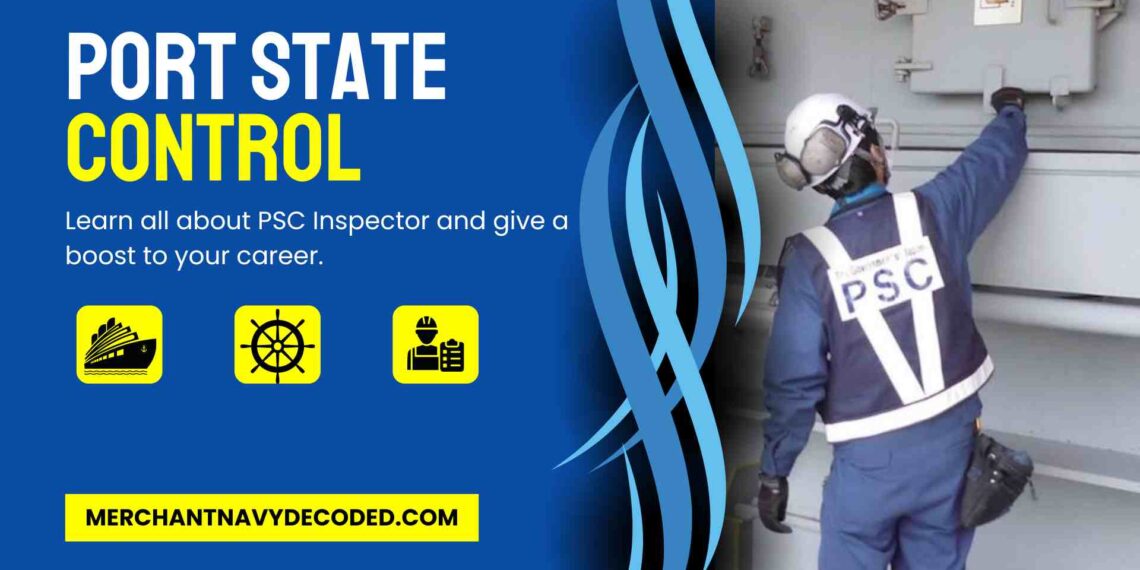Port State Control | A Comprehensive Guide
Overview
- Port State Control (PSC) is a regulatory mechanism that allows sovereign and self-governing states to inspect foreign-flagged ships visiting their ports to ensure compliance with international maritime conventions.
- In simple words, Port State Control (PSC) is a maritime regulatory organization for foreign ships, visiting ports of a country are inspected by the port state’s authorities.
- Port state control aims to verify ship compliance with international maritime conventions, ensuring that the ships meet safety, security, and environmental standards.
- Port State Control acts as a supplementary mechanism to flag state control, serving as a safety net to identify and rectify deficiencies in ship operations, equipment, and crew, thereby enhancing maritime safety and environmental protection.
- Find out what other profession you can shit to from ship with our latest blog about Ship to Shore.
1:- Why is Port State Control Necessary?

Port State Control (PSC) is necessary for several reasons:
- Safety: PSC checks foreign ships for safety standards, reducing accidents and saving lives at sea.
- Environmental Protection: By ensuring that ships follow environmental laws, Port State Control inspections help prevent pollution and save maritime environments.
- Fair Competition: Port State Control encourages fair competition among ship operators by assisting in the prevention of operating substandard ships.
- Human Rights: Port State Control inspections ensure fair treatment and rights for seafarers by checking crew welfare and working conditions.
- Flag State Oversight: Port State Control adds oversight, ensuring flag states comply with global maritime laws.
Port state control is essential to preserving environmental integrity, upholding safety standards, and encouraging ethical behavior in the maritime sector.
2:- How To Become a Port State Control Inspector?

2.1:- How to Become a Port State Control Inspector?
Becoming a Port State Control (PSC) inspector is a prestigious and crucial role in ensuring maritime safety and compliance. One of the key pathways to joining this field is through specialized training offered by institutions like:
- Anglo Eastern Maritime Training Centre
- Maritime Training Academy
- Lloyd’s Maritime Institute
2.2:- Entry Criteria and Course Details for Port State Control

1) Lloyd’s Maritime Institute
| Course | Flag State Inspections and Classification Surveys Training Certificate |
| Criteria | There are no prerequisites for this course |
| Duration | You’ll spend about 6 hours per week learning, totaling 52 hours over 2 months. Tests take less than 2 hours. You can do the training at your own pace and return to it whenever you want. |
To apply for the course:- CLICK HERE.
2) Anglo Eastern Maritime Training Centre
| Course | Port State Control Inspections |
| Criteria | There are no prerequisites for this course (All Officers) |
| Duration | 2 Days (Theory Only) |
To apply for the course:- CLICK HERE.
3) Maritime Training Academy
| Course | Diploma In Port State Control |
| Criteria | There are no prerequisites for this course (All Officers) |
| Duration | 12-18 Months |
| Cost | Diploma:- £2,950 Certificate:- £2,150 |
To apply for the course, CLICK HERE
3:- Conclusion

In conclusion, by checking foreign ships in port, Port State Control (PSC) is essential to maintaining marine safety and environmental protection.
Training to become a PSC Inspector can be acquired from Lloyd’s Maritime Institute, Maritime Training Academy, Anglo Eastern Maritime Training Centre.
PSC inspectors play a key role, in ensuring ships comply with international environmental, safety, and security regulations. A port officer’s annual income in India is approximately ₹5 lakhs, which makes it a very profitable career choice in the maritime sector.
Disclaimer :- The opinions expressed in this article belong solely to the author and may not necessarily reflect those of Merchant Navy Decoded. We cannot guarantee the accuracy of the information provided and disclaim any responsibility for it. Data and visuals used are sourced from publicly available information and may not be authenticated by any regulatory body. Reviews and comments appearing on our blogs represent the opinions of individuals and do not necessarily reflect the views of Merchant Navy Decoded. We are not responsible for any loss or damage resulting from reliance on these reviews or comments.
Reproduction, copying, sharing, or use of the article or images in any form is strictly prohibited without prior permission from both the author and Merchant Navy Decoded.


